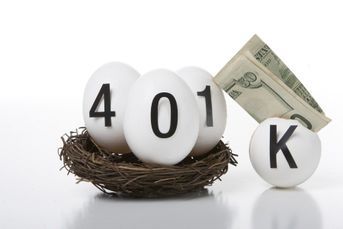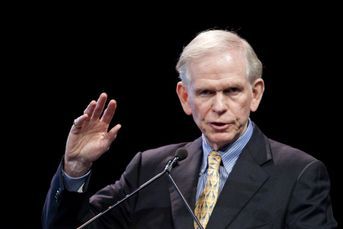If you like volatility, this market is for you
Fed's Lacker, an opponent of more stimulus, says expect more price swings amid taper debate.
Federal Reserve Bank of Richmond President Jeffrey Lacker, who dissented against additional stimulus at every Fed meeting last year, predicted financial markets will remain volatile as policy makers debate how and when to curtail the central bank’s asset purchases.
“As market participants gain additional insight from the words of Federal Reserve officials or by policy actions in coming quarters, further asset price volatility seems likely,” Lacker, who doesn’t vote on policy this year, said in a speech today in White Sulphur Springs, West Virginia. “This type of volatility is a normal part of the process of incorporating new information into financial asset prices.”
Global stocks and bonds retreated after Fed Chairman Ben S. Bernanke on June 19 outlined the conditions that would prompt the policy-setting Federal Open Market Committee to reduce and eventually end $85 billion in monthly asset purchases. The benchmark 10-year Treasury fell, pushing the yield to a 22-month high of 2.66 percent this week.
The reaction by investors since Bernanke’s comments is “evidence that they had built in expectations of more asset purchases than I think the committee taken as a whole was anticipating,” Lacker told reporters after his speech. Recent asset price declines “should not be too surprising,” he said in the speech. Other Fed officials said markets overreacted.
Bond Yields
The yield on the 10-year Treasury note increased 0.04 percentage point to 2.51 percent at 12:30 p.m. in New York Friday, while the Standard & Poor’s 500 Index fell 0.2 percent to 1,610.04. The S&P 500 has risen 1.1 percent this week, paring its first monthly drop since October. It is up 2.8 percent in the second quarter, bringing the 2013 rally to 13 percent.
Volatility in the $4 trillion-a-day foreign-exchange market as measured by JPMorgan Chase & Co.’s Global FX Volatility Index has jumped 36 percent in 2013 and touched the highest in a year on June 24. The Chicago Board Options Exchange Volatility Index, a gauge of expected S&P 500 swings derived from contracts to protect stocks against losses, soared to a 2013 high of 20.49 (VIX) last week, almost double its six-year low of 11.30 in March.
“We’re entering a period now where risks are going to be more two-sided about policy, and I think that’s naturally going to be a period where fixed-income markets are going to be more volatile,” Lacker told reporters. “When tightening becomes closer in time, you’re going to get more fixed-income volatility.”
September Meeting
The FOMC’s September meeting, the next to be accompanied by a press conference by Bernanke, is “certainly a candidate” for when the Fed “could first reduce the pace” of its asset purchases, Lacker told reporters. He repeated that any decision “is going to depend on the data” about the economy.
Fed Governor Jeremy Stein, who has backed record stimulus, said in New York today that officials should “be clear that in making a decision in, say, September, it will give primary weight to the large stock of news that has accumulated since the inception of the program,” last September, rather than looking only at the most recent figures.
Atlanta Fed President Dennis Lockhart yesterday used a smoking metaphor to suggest investors had misinterpreted the Chairman’s remarks. “It seems to me the chairman said we’ll use the patch, and use it flexibly, and some in the markets reacted as if he said ‘cold turkey,’ ” Lockhart said in a speech to the Kiwanis Club of Marietta in Georgia.
“Market adjustments since May have been larger than would be justified by any reasonable reassessment of the path of policy,” Fed Governor Jerome Powell said yesterday in a speech at the Bipartisan Policy Center in Washington.
Purchases Unwarranted
Lacker said today more bond purchases are unwarranted because the four-year economic expansion is being limited by structural elements beyond the Fed’s control, and continued growth in the balance sheet increases the risks accompanying the eventual withdrawal of the stimulus. The Fed said this week its holdings have climbed to a record $3.48 trillion.
“The benefit-cost trade-off for further monetary stimulus does not look promising,” Lacker said at a judicial conference held by the U.S. Court of Appeals for the Fourth Circuit. “I seriously doubt additional monetary stimulus can provide much impetus to real growth right now.”
Bernanke told reporters last week the FOMC may taper the monthly bond buying later this year and halt purchases around mid-2014 as long as the economy performs in line with Fed projections. Officials estimate the jobless rate, 7.6 percent in May, will fall to 7.2 percent to 7.3 percent by year-end.
‘Punch Bowl’
“Over the course of the next 12 months, the committee will be reducing only the pace at which it is adding accommodation,” Lacker said. “The Federal Reserve is not only leaving the punch bowl in place, we’re continuing to spike the punch, though at a decreasing rate over the next year.”
While low economic growth rates “are likely to persist for several years,” one of the biggest bright spots in the outlook has been in the housing market, Lacker said.
Housing “is finally on a solid growth path,” the Fed district bank chief said. The improvement “has bolstered the confidence of many households in the market value of their most important asset.”
Lacker, 57, doesn’t vote again until 2015. He became president of the Richmond Fed in 2004 after five years as director of the regional bank’s research department.
Bloomberg News
Learn more about reprints and licensing for this article.








